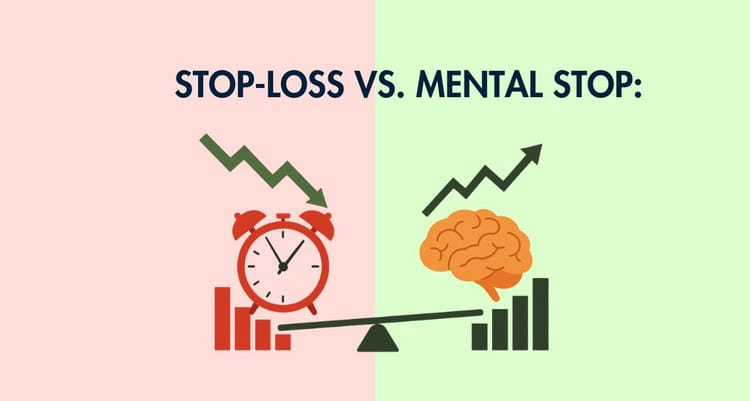How to Invest Your First Salary: A Beginner's Guide to Personal Finance Strategy and Investment

Congratulations! You've received your first paycheck, marking an important milestone in your life. Now, the question arises: what should you do with this hard-earned money? Investing your first salary wisely can set you on the path to financial success and security. Here are some simple yet effective strategies for making the most of your first paycheck.
Understand Your Financial Goals
Before diving into investments, take some time to clarify your financial goals. Do you want to save for a down payment on a house, pay off student loans, build an emergency fund, or start saving for retirement? Understanding your objectives will help you tailor your investment strategy to align with your aspirations.
Create an Emergency Fund
Start by setting aside a portion of your salary to build an emergency fund. Aim to save enough to cover three to six months' worth of living expenses. This fund will provide a financial safety net in case of unexpected expenses or job loss, allowing you to weather any storms without dipping into your investments.
Pay Off High-Interest Debt
If you have any high-interest debt, such as credit card balances or personal loans, prioritize paying it off. High-interest debt can quickly accumulate and hinder your financial progress. Use a portion of your salary to tackle these debts aggressively, starting with the ones with the highest interest rates.
Start Investing in Retirement Accounts
Take advantage of employer-sponsored retirement accounts, such as 401(k)s or pension plans, if available. These accounts offer tax benefits and employer contributions, making them an excellent opportunity to save for retirement. Contribute at least enough to qualify for any employer matching contributions, as this is essentially free money.
Explore Individual Retirement Accounts (IRAs)
Consider opening an Individual Retirement Account (IRA) to supplement your employer-sponsored retirement savings. Traditional IRAs offer tax-deferred growth, while Roth IRAs provide tax-free withdrawals in retirement. Choose the option that best fits your current financial situation and long-term goals.
Diversify Your Investments
When it comes to investing, diversification is key. Spread your investments across different asset classes, such as stocks, bonds, real estate, and mutual funds, to reduce risk and maximize returns. Consider your risk tolerance and investment timeframe when determining the appropriate asset allocation.
Educate Yourself About Investing
Take the time to educate yourself about investing fundamentals, such as asset allocation, risk management, and investment strategies. There are plenty of resources available, including books, online courses, and financial advisors, to help you navigate the world of investing confidently.
Stay Consistent and Patient
Remember that investing is a long-term endeavor. Stay consistent with your contributions and resist the urge to react impulsively to short-term market fluctuations. Keep a long-term perspective and trust in the power of compounding to grow your wealth over time.
By following these steps and investing your first salary wisely, you can lay the groundwork for a secure financial future. Remember, it's never too early to start investing, and every dollar you save and invest today has the potential to grow exponentially in the years to come. Start small, stay disciplined, and watch your wealth grow over time.
Frequently Asked Questions (FAQ)
1. Why is it important to have financial goals before investing?
Understanding your financial goals helps tailor your investment strategy to align with your aspirations. Whether you want to save for a house, pay off debt, build an emergency fund, or save for retirement, clear goals provide direction and purpose to your investments.
2. What is an emergency fund and why do I need one?
An emergency fund is a savings buffer that covers three to six months’ worth of living expenses. It provides financial security in case of unexpected expenses or job loss, allowing you to handle emergencies without disrupting your investments.
3. Should I pay off high-interest debt before investing?
Yes, paying off high-interest debt should be a priority. High-interest debt, such as credit card balances, can accumulate quickly and hinder your financial progress. Reducing this debt frees up more money for investing and saving.
4. How can I start investing in retirement accounts?
Take advantage of employer-sponsored retirement accounts, like 401(k)s or pension plans. Contribute enough to qualify for any employer matching contributions. Additionally, consider opening an Individual Retirement Account (IRA) to supplement your retirement savings.
5. What’s the difference between a Traditional IRA and a Roth IRA?
- Traditional IRA: Contributions are tax-deferred, meaning you pay taxes on withdrawals in retirement. This can be beneficial if you expect to be in a lower tax bracket when you retire.
- Roth IRA: Contributions are made with after-tax dollars, but withdrawals in retirement are tax-free. This is advantageous if you expect to be in a higher tax bracket when you retire.
6. Why is diversification important in investing?
Diversification spreads your investments across different asset classes (stocks, bonds, real estate, mutual funds) to reduce risk and maximize returns. It helps protect your portfolio from significant losses due to market fluctuations in a single asset class.
7. How can I educate myself about investing?
There are numerous resources available, including books, online courses, financial news websites, and financial advisors. Learning about asset allocation, risk management, and investment strategies will help you make informed decisions.
8. What does it mean to stay consistent and patient in investing?
Investing is a long-term endeavor. Consistency means regularly contributing to your investments, regardless of market conditions. Patience involves resisting the urge to react to short-term market fluctuations and keeping a long-term perspective to allow your investments to grow.
9. How should I start investing with my first salary?
- Set financial goals.
- Create an emergency fund.
- Pay off high-interest debt.
- Invest in employer-sponsored retirement accounts.
- Open an IRA.
- Diversify your investments.
- Educate yourself about investing fundamentals.
- Stay consistent and patient with your investments.
10. How can I find the right balance between saving and investing?
Assess your financial situation and goals. Prioritize building an emergency fund and paying off high-interest debt. Then, allocate a portion of your salary to savings and investments based on your risk tolerance and financial objectives.
11. What role does compounding interest play in investing?
Compounding interest allows your investment earnings to generate additional earnings over time. The longer your money remains invested, the more it grows exponentially, leading to significant wealth accumulation.
12. How can I get personalized investment advice?
Consult with a financial advisor who can provide tailored advice based on your financial situation, goals, and risk tolerance. They can help you create a comprehensive investment plan and guide you through the process.
13. How can I start planning my investments effectively?
- Set clear and achievable financial goals.
- Determine your risk tolerance and investment horizon.
- Diversify your portfolio.
- Stay informed and educated about investment options.
- Plan your investments with us for personalized strategies and professional guidance.






Member discussion